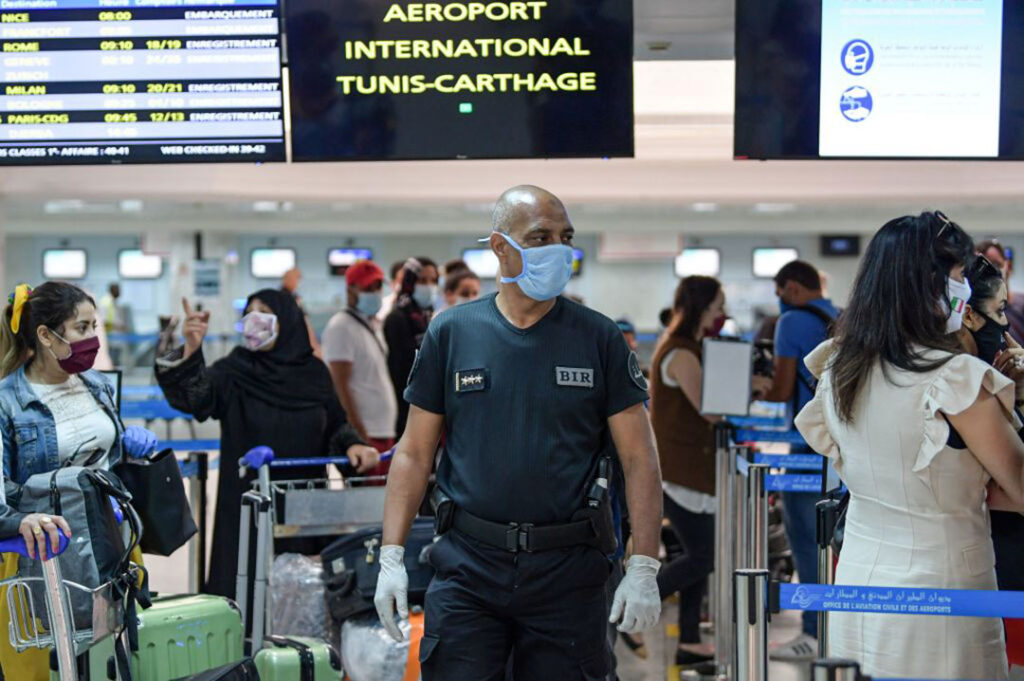ADF STAFF
From the day in March when COVID-19 arrived in Tunisia, the United States has been an important partner in that country’s fight to protect its citizens.
Through the U.S. Embassy in Tunis, the United States has donated key medical equipment when it was needed, trained first responders in the best ways to avoid infections, and supported local manufacturers of personal protective equipment (PPE).
“The United States is committed to working with the Tunisian government to support its COVID-19 prevention and response efforts, both now and in the future,” Ambassador Donald Blome told Tunisian officials in June at the presentation of medical equipment to the Ministry of Health.
Soon after the outbreak of COVID-19 in Tunisia, the U.S. stepped up with a $25 million grant to strengthen the nation’s response to the virus. The Economic Support Funding helped increase testing capacity, prevent infections at health care facilities, and communicate risk and prevention to the public.
Later, U.S. officials donated sanitation equipment for trash collectors and janitors in 151 municipalities — nearly half of Tunisia’s 350 towns and cities. European donors and the United Nations matched that donation to help the remaining communities. The donation included $1.5 million in equipment, such as disinfectants to clean potentially contaminated surfaces and equipment to help safely transport deceased patients.
Through the sa7ti.tn project, the U.S. provided training to first responders almost entirely virtually. The medical simulations gave students a chance to learn without putting them or their patients at risk of contracting the virus, embassy officials said.
With funding from USAID’s Tunisia JOBS program, the U.S. also helped Tunisians keep their jobs by working through local medical equipment-maker Consomed to procure gowns and other safety equipment for front-line workers.
Hamza Alouini, director general of Consomed, said the grant ensured that his factory did not shut down when raw materials became scarce. Instead, his workers operated nonstop for 43 days after the virus outbreak, and Tunisia was able to make the PPE it needed rather than importing it.
“We used to just fill the needs of hospitals,” Alouini said. “But during this period of COVID-19, we started receiving demands from other sectors such as the military, the Ministry of the Interior, the Department of Civil Protection and all the individuals who are in direct contact with infected people.”
Thanks in part to its careful and coordinated response to COVID-19, Tunisia has remained one of the African countries least affected by the virus. As of August 18, the government had reported 2,300 cases and 57 deaths. The government reported no new cases by mid-May and reopened its borders to visitors by the end of June. By late July, however, visitors caused a jump in new cases, according to the North Africa Post.

